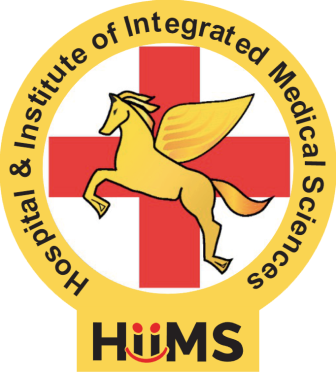Many people start by feeling unusually tired for no clear reason, repeatedly blaming work, weather, or stress without realising something deeper could be going on. Turns out small changes matter, especially with blood related illnesses. This blog explains how to notice the early signs of blood cancer before they worsen, written with simplicity so anyone can follow. No medical terms, just clear points you can use right away.
You will learn the common early clues, the simple home checks that raise concern, and how timely medical guidance can help with strength and recovery. Read on to understand what to watch for, what to mention at the clinic, and where to seek help quickly today.
This blog breaks things down simply. First, we say what blood cancer is, then list clear cues to watch for, explain why early checks matter, and finally share what steps can help you act faster. The goal is to help you spot the signs of blood cancer early and respond before it spreads.
Understanding Blood Cancer – A Brief Overview
Blood cancer affects blood cells, bone marrow, or the lymphatic system. Common types include leukemia, lymphoma, and myeloma. Each type can behave differently, but the common thread is altered blood function. Early detection stops escalation and widens the options for Blood cancer Treatment while improving comfort.
Why Early Detection Matters
Delaying attention can let the disease progress, making care harder and recovery slower. Catching the Early Signs of blood Cancer means simpler interventions and a better daily life with fewer hospital visits. Noticing your body’s small changes is often the first and most useful step.
Recognising the Early Signs of Blood Cancer
1. General Early Signs
Watch for persistent fatigue, repeated infections or unexplained fevers, weight loss, night sweats, breathlessness, and pale skin. These are common symptoms of blood cancer that many dismiss as tiredness or seasonal illness. These symptoms of blood cancer often appear together and build slowly.
2. Specific Signs to Watch (linked to types)
Look for easy bruising, bleeding gums, little red spots on the skin (petechiae), or swollen, painless lymph nodes in the neck, armpits, or groin. Bone or joint pain and a feeling of fullness in the belly can point to an enlarged spleen. Itchy skin or a sudden rash is also on the list of signs of blood cancer to keep an eye on.
3. When to Raise Concern
If several symptoms last more than a few weeks, or if small problems add up, it is time to consult a clinician. Early screening tests, like a simple complete blood count, can clarify things and guide further Blood cancer Treatment decisions. Discussing treatment options early helps planning and peace of mind.
Spotting the Early Signs Before It Spreads
Most people notice something is off long before blood cancer is diagnosed, but they rarely connect the dots. Fatigue that doesn’t fade even after rest, slight breathlessness while climbing stairs, or frequent infections, all seem harmless alone, yet together, they often mark the early signs of blood cancer.
The tricky part is these changes come slowly. You might just think you’re low on vitamins or overworked. But when tiredness becomes a daily story, when bruises appear without reason, or when small cuts take longer to heal, it’s your body’s way of saying something isn’t right. These are the subtle symptoms of blood cancer that show up before it spreads further.
Another sign people often ignore is unexplained weight loss. It’s easy to feel happy about losing a few kilos without effort, but when it happens without changes in diet or activity, it could be a hidden red flag. Similarly, pale skin, night sweats, or frequent nosebleeds can also be quiet alarms.
Early detection isn’t about fear; it’s about awareness. The more you listen to your body, the sooner you can act. Routine blood tests, especially if you often fall sick or feel drained, can help catch early irregularities. When found in time, the success rate of blood cancer treatment increases, and recovery becomes smoother.
The key is simple, and that is to never ignore small changes. Observe your energy levels, your skin tone, and even how often you get infections. These daily cues are the body’s natural warning system. Paying attention to them can make all the difference between early control and late discovery.
Conclusion
In short, noticing the early signs of blood cancer gives you time to test, plan, and choose care that fits daily life. Do not ignore lasting tiredness, odd bruises, persistent fever, or sudden weight loss; these hints matter. Early checks often lead to simpler interventions and steadier recovery.
If you spot these signs, arrange a basic blood test and talk to a trusted practitioner quickly. Call Jeena Sikho HiiMS at +91 87920-87920 or email care@jeenasikho.com for an appointment and compassionate guidance. Our team blends natural care with modern diagnosis, supporting strength, digestion, and immunity through personalised plans and careful follow-up.
FAQs
Q1: What are the most common early signs to watch for?
Look for lasting tiredness, frequent infections, unexplained bruising and sudden weight loss as key symptoms of blood cancer.
Q2: How soon should I get checked if I notice symptoms?
Seek a basic blood test within a few days to a couple of weeks if multiple signs of blood cancer persist or worsen.
Q3: Can blood cancer be found early through simple tests?
A basic CBC test can show early changes in blood cells and help the doctors to act before it spreads.
Q4: What should I do if I notice early signs?
Note the symptoms and get tested soon. Early checks make recovery easier and faster.
Q5: When should I contact Jeena Sikho HiiMS for advice?
Contact Jeena Sikho HiiMS if you notice clusters of the described symptoms; early advice helps tailor screening and supportive care promptly.


